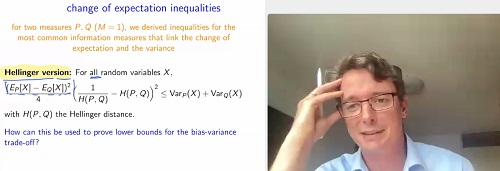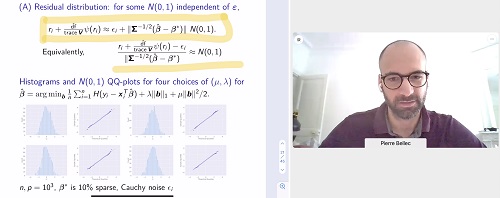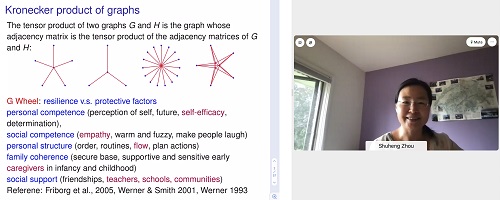On the occasion of the International Conference on Statistics and Related Fields (ICON STARF) which took place remotely on 12-16 July 2021, young researchers and renowned experts from around the world exchanged about the latest mathematical development in the field of statistics. More than 150 participants attended the event organised in the frame of the ERA Chair in Mathematical Statistics and Data Science (SanDAL) and supported by the European Horizon 2020 programme and the Luxembourg National Research Fund (FNR).
Fruitful discussions
The conference was introduced by Prof. Yannick Baraud, SanDAL ERA Chair Holder, who welcomed all the speakers and participants for the first edition of the International Conference on Statistics and Related Fields (ICON STARF). Throughout the week, top level mathematicians presented their findings and exchanged with the audience.

Vladimir Koltchinskii (Georgia Institute of Technology), Qi-Man Shao (Southern University of Science and Technology), Aaditya Ramdas (Carnegie Mellon University), Johannes Schmidt-Hieber (University of Twente) and Nicolas Verzelen (INRAE) presented some recent advances on some classical problems of mathematical statistics (estimation of means, bias reduction in high dimension, the bias and variance trade off and the change point detection problem).

Sébastien Bubeck (Microsoft Research), Ronald DeVore (Texas A&M University), Rebecca Willett (University of Chicago) and Sylvain Arlot (Université Paris-Saclay) analysed from a mathematical point of view some commonly used machine learning methods, such as neural networks and random forests.

Pierre Bellec and Zijian Guo (Rutgers University), as well as Po-Ling Loh (University of Cambridge), Stanislav Minsker (University of South California) and Nikita Zhivotovskiy (ETH Zürich) tackled the problem of robustness in statistical learning.

Sofia Olhede (EPFL), Shuheng Zhou (University of California), Axel Munk (Georg-August-Universität Göttingen) and Richard Nickl (University of Cambridge) showed some recent successful applications of statistical methods to fraud detection, genomics and physics respectively.
